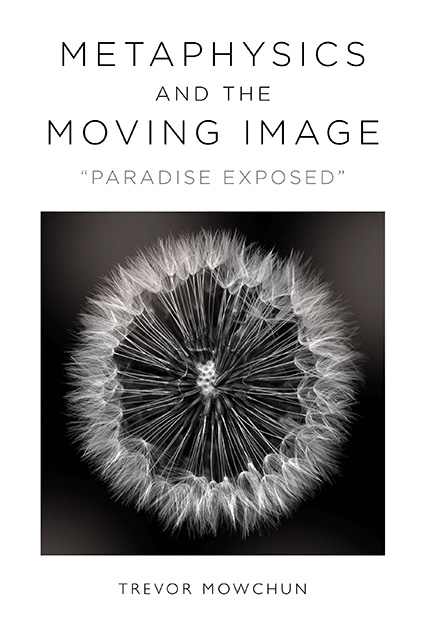Book contents
- Frontmatter
- Contents
- List of Figures
- Acknowledgments
- Introduction: The Death of God, the Birth of Film, and the New Metaphysics
- Chapter One Image Breakthrough: Disclosure and Derailment in Painting, Photography, and Film
- Chapter Two The Evolution of the Concept of “World” from Philosophy to Film
- Chapter Three Paradise Exposed: Psychic Automatism in Film Primer: “While the will is off its watch”
- Chapter Four Nature, Whose Death Shines a Light: Exteriority and Overexposure in The Thin Red Line
- Chapter Five “Mother, I am Dumb …”: The Reevaluation of Friedrich Nietzsche in The Turin Horse
- Notes
- Bibliography
- Index
Introduction: The Death of God, the Birth of Film, and the New Metaphysics
Published online by Cambridge University Press: 19 October 2023
- Frontmatter
- Contents
- List of Figures
- Acknowledgments
- Introduction: The Death of God, the Birth of Film, and the New Metaphysics
- Chapter One Image Breakthrough: Disclosure and Derailment in Painting, Photography, and Film
- Chapter Two The Evolution of the Concept of “World” from Philosophy to Film
- Chapter Three Paradise Exposed: Psychic Automatism in Film Primer: “While the will is off its watch”
- Chapter Four Nature, Whose Death Shines a Light: Exteriority and Overexposure in The Thin Red Line
- Chapter Five “Mother, I am Dumb …”: The Reevaluation of Friedrich Nietzsche in The Turin Horse
- Notes
- Bibliography
- Index
Summary
The important thing is to tie one's shoelaces, sew back the parted button, and look the world in the eye.
— Guy Davenport, A Field of Snow on a Slope of the RosenbergThe branch of philosophy known as metaphysics (sometimes referred to as “first philosophy,” in that case the root of philosophy) is the oldest and most enduring mode of inquiry into the nature of things. Questions regarding substrates of being, the nature of time and space, elemental harmony and entropy, the soul, good and evil, immortality and the existence of God, and all attempts to know something “in itself” (including the very act of knowing) characterize metaphysics as the idealistic and often systematic pursuit of essences or absolutes, the grasping of which would give us “truth,” at long last, and therefore something resembling a perpetual cause lurking behind the myriad effects surrounding us and constituting our world—thus redeeming the limits of human finitude as the adventure of insight gives way to the restfulness of wisdom in the lap of the eternal. With a pure love of knowledge tested by daring acts of skepticism, metaphysics harbors a blind faith in the power to wrest the absolute from the flow and flux of primordial life. Such faith, however, seems destined for betrayal, considering that the past 2,500 years or so of Western philosophy (much of it guided by metaphysical tendencies) have seen not a single system of thought, even the most comprehensive, succeed in generating any absolute once and for all. It is as if the concreteness of the absolute, once touched, either loses the grandeur it possessed when out of reach, entering the flow of historical contingency, or retains such grandeur but only as a mere possibility or thought experiment. With our twenty-first-century hindsight over the sprawling history of the metaphysical enterprise, we are left with the realization that even the most rigorous arguments, luminous insights, and airtight cartographies of human understanding of the world as a whole have proven over time to cripple under the weight of philosophical critique or simply lose their power to satisfy the bottomless temptation of truth—for this temptation turns out in the history of ideas to be ultimately insatiable, like a biological need returning daily, breeding distortions of common sense when deprived and revealing more about the agony and ambition of the human condition than that of the world we strive to know.
- Type
- Chapter
- Information
- Metaphysics and the Moving Image'Paradise Exposed', pp. 1 - 18Publisher: Edinburgh University PressPrint publication year: 2023



